For innovators in the food tech sector, the ongoing battle among the world’s biggest food chains over who can have a better plant-based and dairy alternative menu is great news.
“Dairy is really tasty, it’s a comfort food, and we all want it for nutritional reasons or lifestyle reasons. At the same time, we are very interested in animal-free, sustainable, humane, and cleaner products,” Jason Rosenberg, head of business development at Remilk, which develops real dairy products with no animals involved, tells NoCamels.
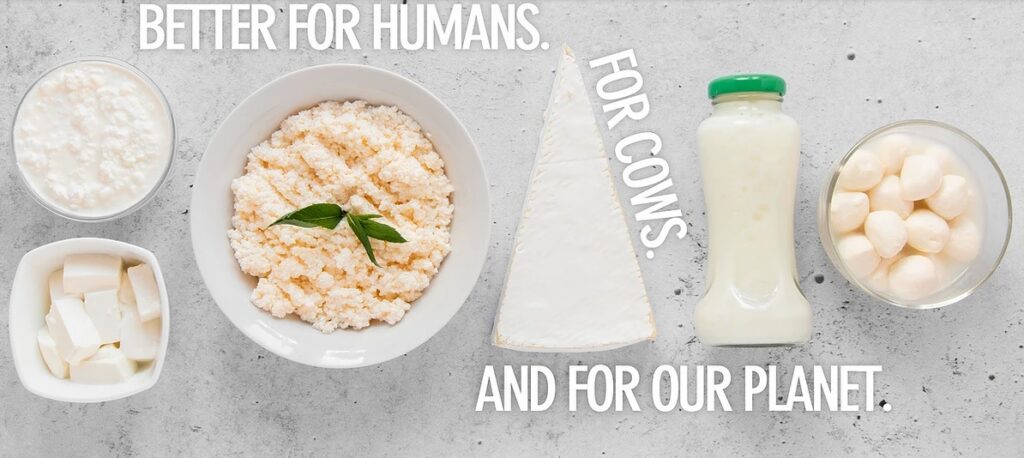
In Israel, a country long identified as a world leader in milk production with the highest milk yield per cow, an innovation-fueled campaign is underway to meet local and global demands as well as to create a new dairy sector.
Local companies – a handful of startups and a mom-and-pop business with global aspirations – are pioneering new ways to improve real milk nutrients, develop animal-free dairy, and produce non milk plant-based dairy alternatives. These emerging technologies and foodstuffs may improve food security, agricultural conditions, and sustainability.
“We are not going to replace the dairy industry, but work together,” Dr. Eyal Afergan, CEO at Imagindairy, tells NoCamels. The Ashdod-based startup has developed a technology to create milk proteins identical to those from cows.
To date, animal agriculture provides about a third of global food protein, according to the Food and Agriculture Organization. But it is also one of the worst polluters. Tomer Aizen, Wilk CEO, makes the solution sound so simple. “We don’t need cows,” he tells NoCamels. His company is working on cell-grown milk production to cut the need for cattle barns and thus reduce harmful environmental consequences.
The world is looking for a new way “to do” dairy. There is rising awareness of how animal products impact our health, the importance of sustainability, and the ethics of these products. Dairy alternative purchases in the US have increased and this market is projected to hit $53 billion by 2028, according to a report published by Fortune Business Insights.
“I really do think that 2022 is a pivotal year. We are moving in the direction away from traditional dairy farming and animal agriculture to an array of different solutions, Remilk being one of them,” says Rosenberg.
NoCamels set out to find how and where Israeli dairy alternative companies are making an impact on the local and world dairy sector:
Precision Fermentation
Imagindairy
Imagindairy, an Israeli food tech startup, is reimagining the way we produce dairy, without the need to use even a single cow.
Dr. Eyal Afergan, Dr. Arie Abo, and Professor Tamir Tuller, founded the startup in 2019, with the goal to deliver animal-free dairy products using a process called precision fermentation in a lab.
“We teach microorganisms, either yeast or fungi, to produce identical milk proteins which are then used to create animal-free dairy products with the same texture, flavor and consistency as traditional dairy products,” Dr. Afergan tells NoCamels.
While dairy is a unique source of nutrients important for our body, Imagindairy says it focuses on providing the nutritional benefits of cow-based dairy while eliminating the drawbacks, creating products that are “cholesterol-free, lactose-free, and hormone-free.”
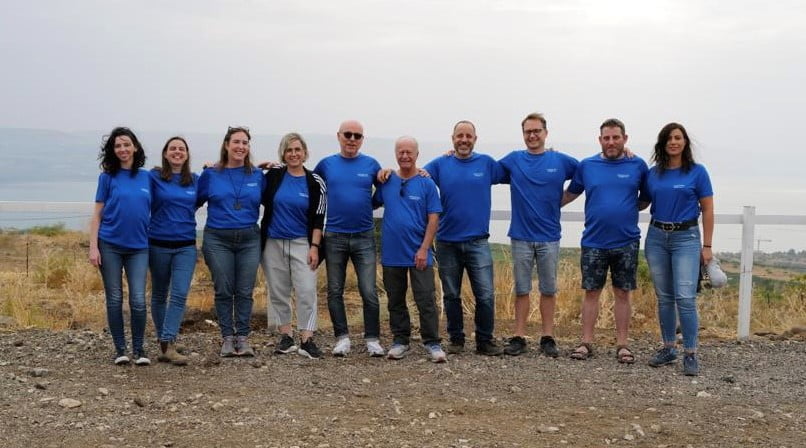
Additionally, Imagindairy can reduce casein and increase whey protein which Dr. Afergan mentions is the “golden standard of protein in nature” and “one of the biggest advantages of dairy.”
While consumer health and product taste are a priority, Afergan says so is the environment, animal welfare, and sustainability.
The company says that compared to traditional dairy production, it only produces one percent of greenhouse gas emissions, without methane, and uses less than 10 percent of the land.
Dr. Afergan also adds that with the global increase in population it will be “impossible to supply all dairy from cows” and that current practices are no longer sustainable for our planet.
“When cows eat plants, they convert 4 percent of what they eat into proteins. Our technology has between 10 to 20 times a better conversion rate, so it’s a much more efficient way to feed the world,” Dr. Afergan tells NoCamels.
If all goes according to plan, Imagindairy’s first product will be launched in 2023 together with the dairy industry, with B2B as Imagindairy’s go-to market.
“We, as a business model, believe that the real transformation can happen only through partnerships and working together with the dairy industry,” Dr. Afergan says. “We are not going to replace the dairy industry, but work together, as sustainability is something that they’re also looking at, and they also would like to be more sustainable.”
Remilk
Remilk hit the headlines recently, raising $120 million in a Series B funding round led by Hanaco Ventures.
Founded in 2019, the company uses precision fermentation to develop animal-free dairy products from milk proteins, eliminating the need to compromise on the flavor, nutrition, and functionality of traditional dairy.
After spending the last several years optimizing their production process, the recent investment moved Remilk from “a startup to more of a scaleup setting,” Jason Rosenberg tells NoCamels.
“What we see is the really impressive and significant interest that the world has in finding solutions to today’s dairy industry and its challenges,” Rosenberg says, adding “This is capital that really allows us to expand our production capacity and produce more of the protein.”
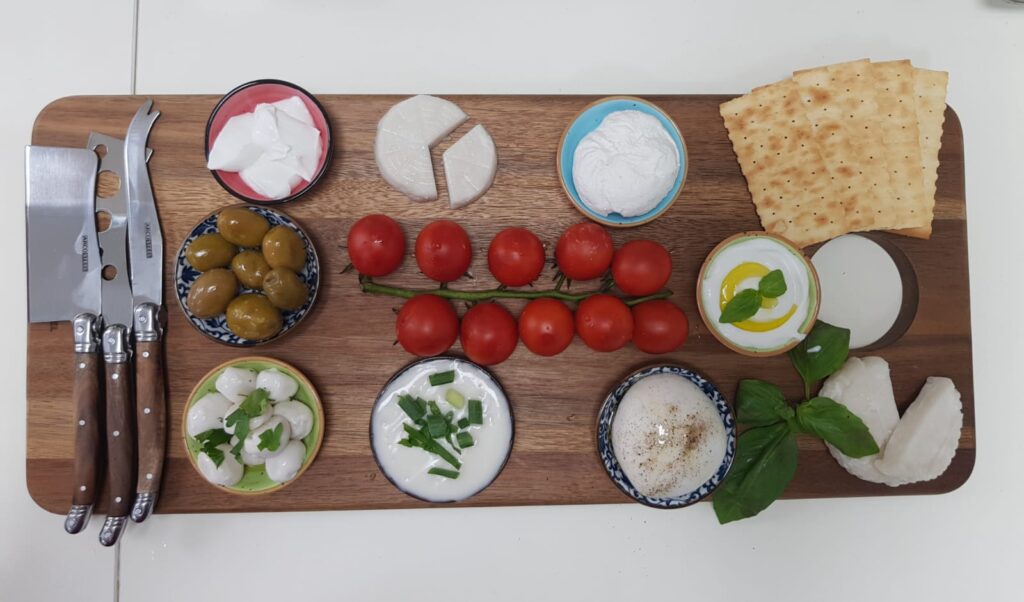
Remilk says that while there are companies who believe that the solution can come by changing eating habits, Remilk believes that instead, production habits need to be changed and can produce the same thing but in a much cleaner way.
Remilk says it needs a fraction of the resources – in terms of energy, land and water – that cows need to produce the same products. On the output side of things, Remilk says it can minimize greenhouse gases “as well as other waste that would be created.”
Providing an example, Rosenberg says, “On the simplest level, we can look at the fact that about 50% of the world’s habitable land is currently being utilized for animal agriculture, either growing the animals or the crops for those animals. And by 2050, human consumption of food is expected to double. And so simple math shows that, 50 times two equals 100, and we’re out of land to even live on.”
Remilk says it has set up production operations across the globe, and we can expect to see commercialization of products “way sooner than you’d expect.”
Lab-cultured milk
Wilk (formerly BioMilk)
Wilk, formerly known as BioMilk, produces lab-cultured animal and human breast milk directly from milk-producing mammary cells.
Founded in 2018, the company went public last year on the Tel Aviv Stock Exchange (TASE) and is working to produce animal-free dairy alternatives in parallel with infant formula, which according to the company is a growing market amongst women globally.
Explaining the process to NoCamels, Tomer Aizen, CEO of Wilk, says “The breast tissue, or the udder of an animal, has a variety of cells that are each responsible to carry out their unique capabilities. In our case, the mammary cells are the most important, producing the components a baby needs such as protein, fat, lactose, minerals, etc.”
Sign up for our free weekly newsletter
SubscribeWhat Wilk does is isolates these mammary cells and feeds them with proprietary technology which causes them to cultivate and duplicate. Once this process is successful, Wilk instructs the cells to begin secreting milk components which can then be used to create dairy products or infant formula, all while still containing the original properties and nutrients of real milk.
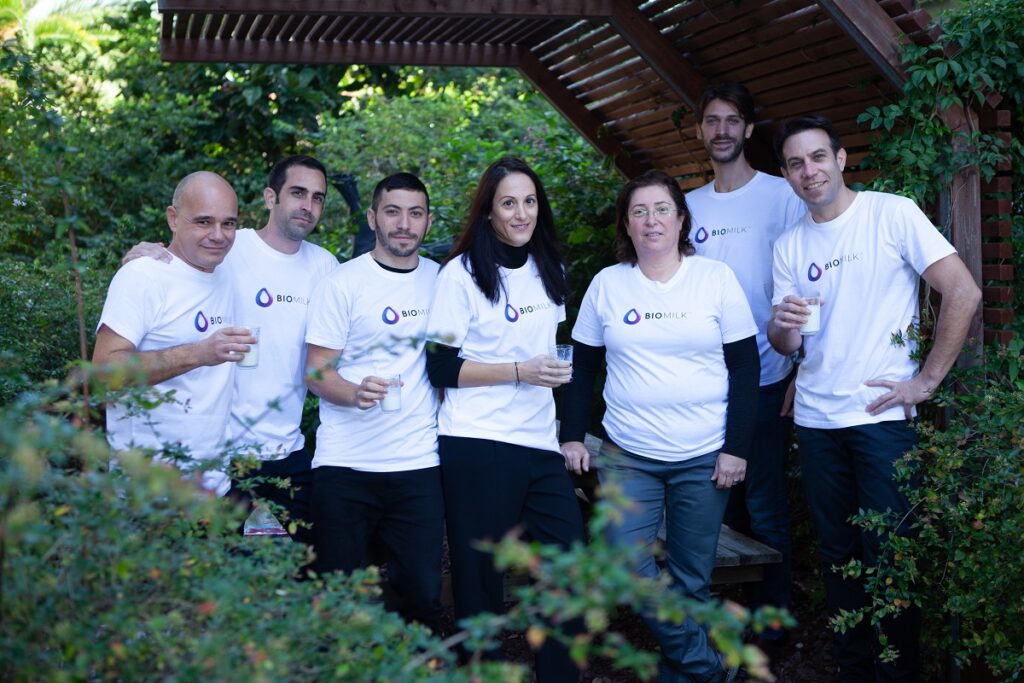
“What we’re going to be capable of doing is really partnering with both the dairy industry and infant formula companies to make end products for consumers containing real milk nutrients”, Rachelle Neumann VP of Marketing & Corporate Affairs at Wilk, tells NoCamels.
The company said it signed an exclusive distribution agreement with Tara, a leading private dairy producer in Israel, and together with them is aiming to produce “the first cell based dairy products by 2024” according to Aizen.
In terms of human breast-milk and infant formula, the company says it will take more time, perhaps a year longer, due to industry regulations, though Tomer says, “in the field of infant formula, we will be the first company that will be able to produce and sell real, natural components from breast milk to global companies.”
While many women across the world understand the unparalleled nutritional value of breast milk for their babies, Wilk says that eventually, its technology can even save lives.
“Not many people are aware that breast milk can be life saving nourishment for preterm babies, with scientific evidence showing that preterm babies who are not breastfed have twice as much of a mortality rate as babies that are,” Neumman tells NoCamels.
The company says that in the last few years, there is a growing online market for breastmilk, where women purchase breast milk on websites such as Ebay from other women, essentially strangers whom they’ve never even met.
SEE ALSO: Israeli Firm BioMilk Is World’s First Cultured Milk Company To Go Public
As the demand for natural formula is clear and growing, Wilk believes it can come in and provide safe, lab-grade real milk components to women across the world and help address this need.
While Wilk focuses on conserving the taste and nutrients of real dairy, sustainability is also a core value of the company, also reflected by last year’s name change from BioMilk to Wilk, with the “W” standing for We.
“The We represents that by collaborating with industry partners, we can work together and establish sustainable products and guarantee the consistent supply of milk dairy-based products for future generations to come” Aizen says. “We’re gonna significantly reduce pollution by reducing the emission of methane gas, because we don’t need cows, which contribute about 4% of the gas emission globally.”
Dairy Alternatives
Tamiz
Founded in 2019 by Tami Steinfeld, Tamiz is a family run company based in Ra’anana, that produces non-soy, vegan, dairy alternative products.
The products are primarily almond-based as “almonds have enormous nutritional benefits such as being high in protein and many other vitamins and minerals,” Uri Steinfeld, Tami’s son and Tamiz business development manager tells NoCamels.
The Steinfeld family has been in the food business for “a very long time” according to Uri Steinfeld, originally manufacturing doughs and pastas such as cannelloni and ravioli to local hotels and restaurants in Israel.
One particular product that changed everything was the vegan ravioli the family manufactured. This product was quickly gaining popularity and an increase in demand, including from Tami’s own daughter Sivan who decided to go vegan.
In efforts to provide her daughter with nutritious and tasty dairy alternatives, Tami began creating vegan products for her and slowly, the family business shifted to what it is today.

Tami feels that the company plays an important role in her community, telling NoCamels, “We really believe that we support people who are lactose intolerant or people who need to stick with very specific diets due to certain health conditions,” adding, “Tamiz is really helping these people and we feel it on a daily basis.”
Tami’s dream is to see their products available at a large scale, telling NoCamels, “We would really love for it to be international and to be able to reproduce and replicate the model that we have today worldwide.”
While the company is a local, family-run business, Uri tells NoCamels that the “technology and manufacturing model that stands behind Tamiz is completely scalable” adding, “it is just a matter of time and resources” until they can expand at a larger scale.
While market and media reports show that many people are interested in ditching dairy altogether, no one wants to give up on taste, texture or nutrition. The company says its variety of products, currently available in Israel only, don’t scrimp on any of these three.
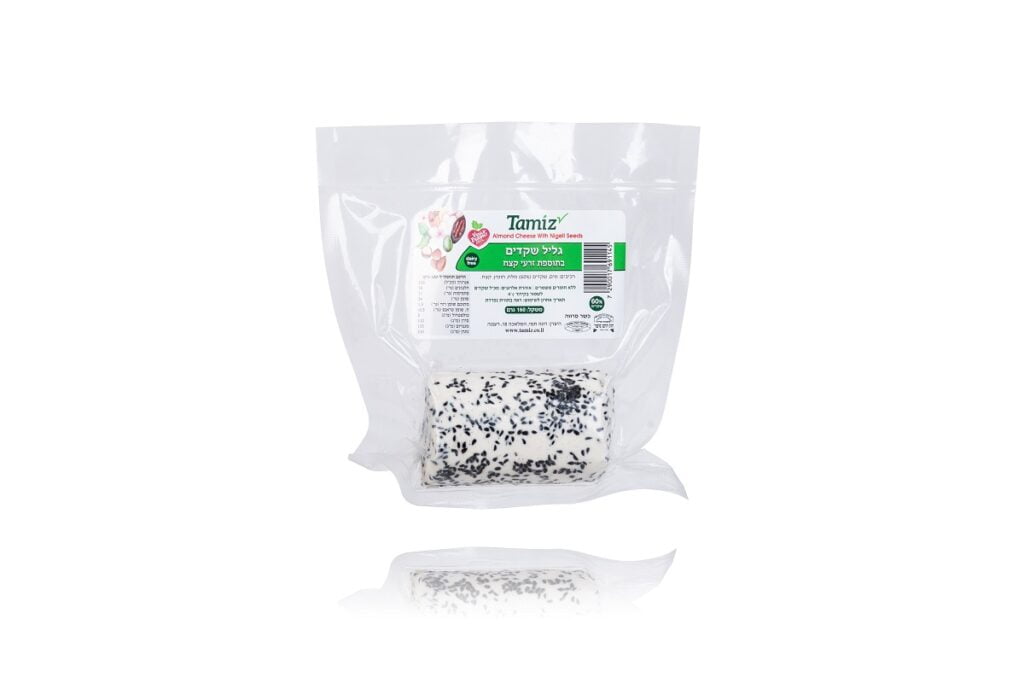
This year, Tamiz says it plans to launch more desserts, chocolates and their popular mozzarella cheese the family coined “Mumarella” which is currently used in restaurants. Tamiz says that this cheese is 100 percent natural and is a vegan substitution for mozzarella that can be used to make pizza, as a topping for lasagna, and other common household dishes.
The company says that Mumarella has a very similar taste, texture and feel to traditional mozzarella, crediting the almond for its taste and natural white color, aligning with traditional cheese.
While hoping to expand in the future, Uri tells NoCamels, “We operate with sustainability in mind with almost everything that we do, from saving water, to recycling everything that comes out of the factory and even reusing packages from customers for their next product orders.”
“Sustainability is a value that is close to our hearts,” Uri says.
Yofix Probiotics
As demand for plant-based dairy alternatives continues to increase, companies such as Yofix Probiotics are helping to provide consumers with a broader range of options and flavors on a global scale.
Founded in 2014, Yofix Probiotics produces vegan and soy-free plant-based dairy alternative products using a proprietary combination of cereals, lentils, grains and seeds. In addition to being completely dairy-free, Yofix’s products contain prebiotics and probiotics typically found in traditional yogurt.
According to Yofix, their products are made from completely natural ingredients, contain a high nutritional value and are also cholesterol free. Additionally the company says it leaves a low ecological footprint.
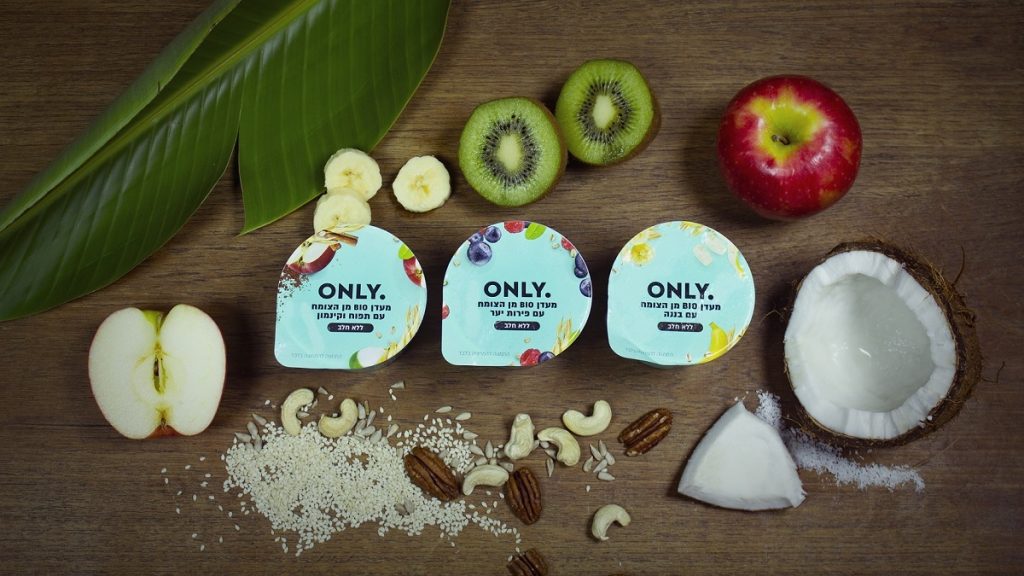
Yofix was elected as one of the 50 most innovative companies in 2019.
“Over the next few years, we will focus strategic efforts on expanding our line of dairy alternatives — which also includes oat yogurt shakes — into the global market,” Steve Grün, CEO of Yofix, said in a press statement, noting the company’s plans to develop “more clean-label plant-based offerings that extend into alternative cheeses, frozen desserts, and milk alternatives — the prospects are boundless.”
Yofix was the first company to join The Kitchen, a leading local food-tech incubator and seed investor in Israel. Last year, the company secured $3.5 million in a funding round led by the Millennium Food-Tech, Israel’s largest food tech R&D partnership and investment firm. The company sells its products in Israel as well as Europe.
Related posts

Israeli Medical Technologies That Could Change The World

Harnessing Our Own Bodies For Side Effect-Free Weight Loss

Missing Protein Could Unlock Treatment For Aggressive Lung Cancer


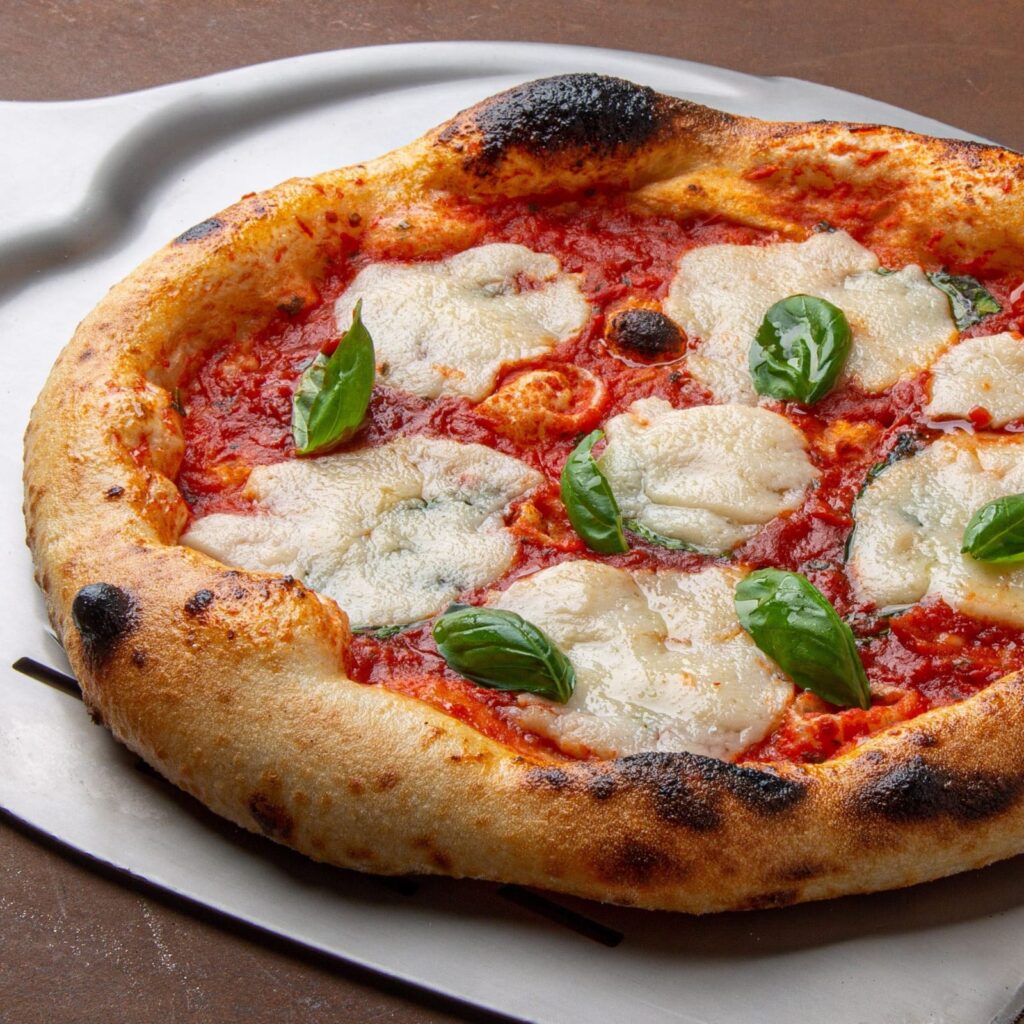

Facebook comments